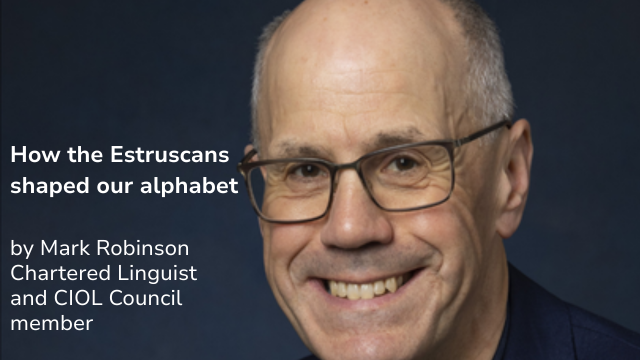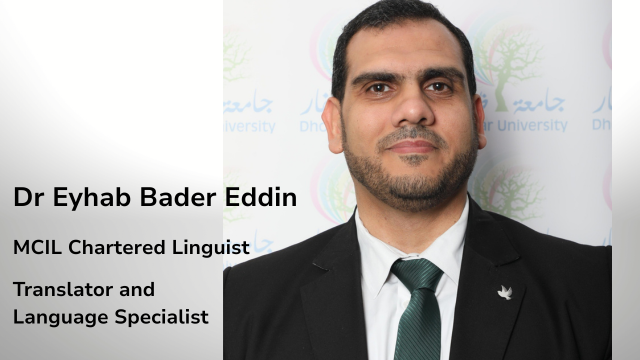-
QUALIFICATIONS
- For Linguists Worldwide
- For UK Public Services
- Preparation
- Policies & Regulation
-
MEMBERSHIP
- Join CIOL
- Professional Membership
- Affiliate Membership
- Chartered Linguist
- Already a member?
- Professional conduct
- Business & Corporate Partners
-
LANGUAGE ASSESSMENTS
- English
- All Other Languages
-
CPD & EVENTS
- Webinars & Events
- CIOL Conferences
- Networks
- CIOL Mentoring
-
NEWS & VOICES
- News & Voices
- CIOL eNews
- CIOL Awards
- The Linguist Magazine
- Jobs & Ads
-
RESOURCES
- For Translators & Interpreters
- For Universities & Students
- Standards & Norms
- CIOL & AI
- All Party Parliamentary Group
- In the UK
- UK Public Services
- Find-a-Linguist
Employment, employment, employment?

Some of the work done by the Institute of Fiscal Studies on the impact of undergraduate degrees on lifetime earnings makes for sobering reading for linguists. Their report from a couple of years ago, for instance, suggested that the discounted average lifetime total returns for women in arts and humanities subjects such as creative arts, languages, and philosophy were negative or near-zero. (See their report here).
One might respond to such a statistic in various ways. One could, for instance, question the methodology used. Or ask whether the benefit of a university education can be captured in financial terms. Or one might wonder — are modern languages as a discipline as aligned with the needs of the market as they should (or could) be?
Employability has become an increasingly hot topic in academic circles, and government is always quick to make a point about university courses delivering “value for money.” It’s tempting to shrug off some of these interventions as political polemics, but could we as linguists be missing a trick here? After all, it’s an undeniable fact that, depending on the nation involved, our students invest money — and arguably even more precious, time — in their language degrees, so is it really so mercenary to be interested, not simply in the return on this investment, but on the career opportunities they open?
As Languages (like other subjects) undergo their QAA Subject Benchmark Statement Review, is there scope to move employability to the fore of this review? Are employers themselves sufficiently engaged in the process of periodic currriculum review in HE institutions? (“Languages for business” — OK, but what does business really want?) And does the work done in some institutions to embed employability in the curriculum itself — and in my experience the OU is a leader in this respect — have lessons for others, notably the Russell Group?
It’s a debate that goes to the heart of how languages are taught — and, crucially, perceived — at school, college, and university. And a sense that languages as a discipline are too often under attack can make it difficult to take stock and develop a new vision. (Particularly a more business-focused one.) Yet in a post-Brexit, Covid-dominated world the need for effective and interculturally-informed communication skills has not gone away and is arguably even larger than before. So is this an opportunity for modern languages as a discipline to rethink its strategy — what is taught, how it’s taught, and whether assessment is too dominant in our concerns?
There’s a bigger picture here too. For that same report from the IFS suggested that average total returns for women in such STEM subjects as physical sciences and biological sciences were also negative or near-zero. Meanwhile, at the other end of the spectrum, the subjects with average total returns of around £500k were law, medicine, and — economics. What does this tell us about what the UK values and its economic priorities?
Professor Paul Bishop MA DPhil DipTrans FCIL is the William Jacks Chair in Modern Languages (German) in the School of Modern Languages & Cultures at the University of Glasgow and is a Fellow of the Chartered Institute of Linguists.
For more on Paul see his profile here.
Views expressed on CIOL Voices are those of the writer and may not represent those of the wider membership or CIOL.
Filter by category
More
The Chartered Institute of Linguists (CIOL), Incorporated by Royal Charter, Registered in England and Wales Number RC 000808 and the IoL Educational Trust (IoLET), trading as CIOL Qualifications, Company limited by Guarantee, Registered in England and Wales Number 04297497 and Registered Charity Number 1090263. CIOL is a not-for-profit organisation.








